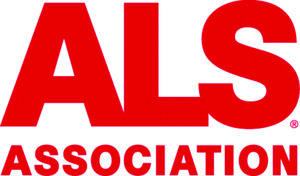The ALS Association Urges U.S. Food and Drug Administration to Expedite Drug Development and Approval Process at First-Ever ALS-Specific Public Hearing
WASHINGTON, Feb. 25, 2013 /PRNewswire-USNewswire/ -- Today, leaders from The ALS Association, in addition to patients, caregivers, physicians, scientists and other concerned individuals, addressed a panel of representatives from the U.S. Food and Drug Administration (FDA) as the agency conducted its first-ever public hearing specific to amyotrophic lateral sclerosis (ALS). The Association urged the FDA to partner with the ALS community to help expedite the drug development and approval process and bring new treatments to patients as soon as possible. Today, there is no effective treatment for ALS and the disease is fatal in an average of just two to five years following diagnosis.
ALS, also known as Lou Gehrig's Disease, is a progressive neurodegenerative disease that affects nerve cells in the brain and the spinal cord. The disease robs people of the ability to walk, to talk and even blink an eye. It traps them inside a body they no longer can control and ultimately prevents them from breathing as it takes their life. There is no known cause of the disease, although military veterans are approximately twice as likely to develop ALS as the general population.
The day can be summed up in a direct quote from Robert Anderson, a person living with the disease who receives care from The ALS Association's "Catfish" Hunter Chapter. Using a computer-generated voice on his tablet because he can no longer speak, he told the FDA panel: "ALS is fast. We need FDA to be faster."
The hearing began early today with remarks from Jane H. Gilbert, President and CEO of The ALS Association, and Lucie Bruijn, Ph.D., Chief Scientist, who were the first to speak among nearly 60 speakers representing every segment of the ALS community and nearly every major ALS organization in the United States.
In her opening remarks, Gilbert stated: "The fact that you have so many people and organizations gathered in one place at one time speaks volumes about our collective desire to partner with the FDA and work in unison to speed the development of and access to treatments for ALS."
Also in her remarks, Gilbert touched on a variety of key issues that the FDA must consider in order to hasten the availability of and access to treatments:
- How people with ALS view benefit and risk;
- Innovation, flexibility and guidance on clinical trial design;
- FDA engagement with investigators and industry earlier and more frequently during the development process;
- The speed of the regulatory process; and
- FDA engagement with patients and patient organizations, including during the review process.
According to Bruijn, "We currently are in one of the most exciting times in the history of ALS drug development." She commented on the promising number of treatments in clinical trials and the fact that the pharmaceutical and biotech industries are joining the search for ALS treatments at a greater pace than ever before.
But despite this positive momentum in the search for treatments, the fact remains that there still are no effective therapies for ALS.
Bruijn continued, "…it is absolutely critical that the FDA and the ALS community come together to not only identify the obstacles and challenges of ALS drug development but also to find the solutions."
In her comments, Bruijn urged the FDA to increase engagement with investigators and industry along with people with the disease. She also urged them to identify ways to be more creative and flexible in the design of clinical trials and to speed preclinical development in ALS, which presently is too time consuming, risky and expensive.
"We request that you work with us to adapt policies to ALS that currently apply to oncology," stated Bruijn. "There are a number of things that are embraced in oncology that easily could and should be embraced for ALS. This is true not only in the pre-clinical phase, but again, throughout the regulatory process," she continued.
Ken McGunagle, Chair of The Association's Board of Representatives also spoke at the hearing. McGunagle spoke on behalf of The Association's 38 chapters that provide services to people and families afflicted with the disease.
"Many people with other serious and life-threatening diseases, like ovarian cancer, have options and hope," said McGunagle, whose wife is an ovarian cancer survivor, and whose father died of ALS six months after being diagnosed. Regarding treatments for ovarian cancer, he continued, "Yes, the treatments are risky and have serious side effects. Yes, they are not always effective. But they provide hope and a chance to be called a survivor. The only survivors with ALS are the loved ones left behind."
At the conclusion of the hearing Gilbert stated: "People with ALS need a treatment for this horrific disease. They need it now and we will continue to work with the FDA and all of our partners to find one as soon as possible. After all, people with ALS do not have time to wait."
For general hearing-related inquiries, please email [email protected] or call (877) 444-2572.
About The ALS Association
The ALS Association is the only national non-profit organization fighting Lou Gehrig's Disease on every front. By leading the way in global research, providing assistance for people with ALS through a nationwide network of chapters, coordinating multidisciplinary care through certified clinical care centers, and fostering government partnerships, The Association builds hope and enhances quality of life while aggressively searching for new treatments and a cure. For more information about The ALS Association, visit our website at www.alsa.org.
SOURCE The ALS Association
WANT YOUR COMPANY'S NEWS FEATURED ON PRNEWSWIRE.COM?
Newsrooms &
Influencers
Digital Media
Outlets
Journalists
Opted In





Share this article